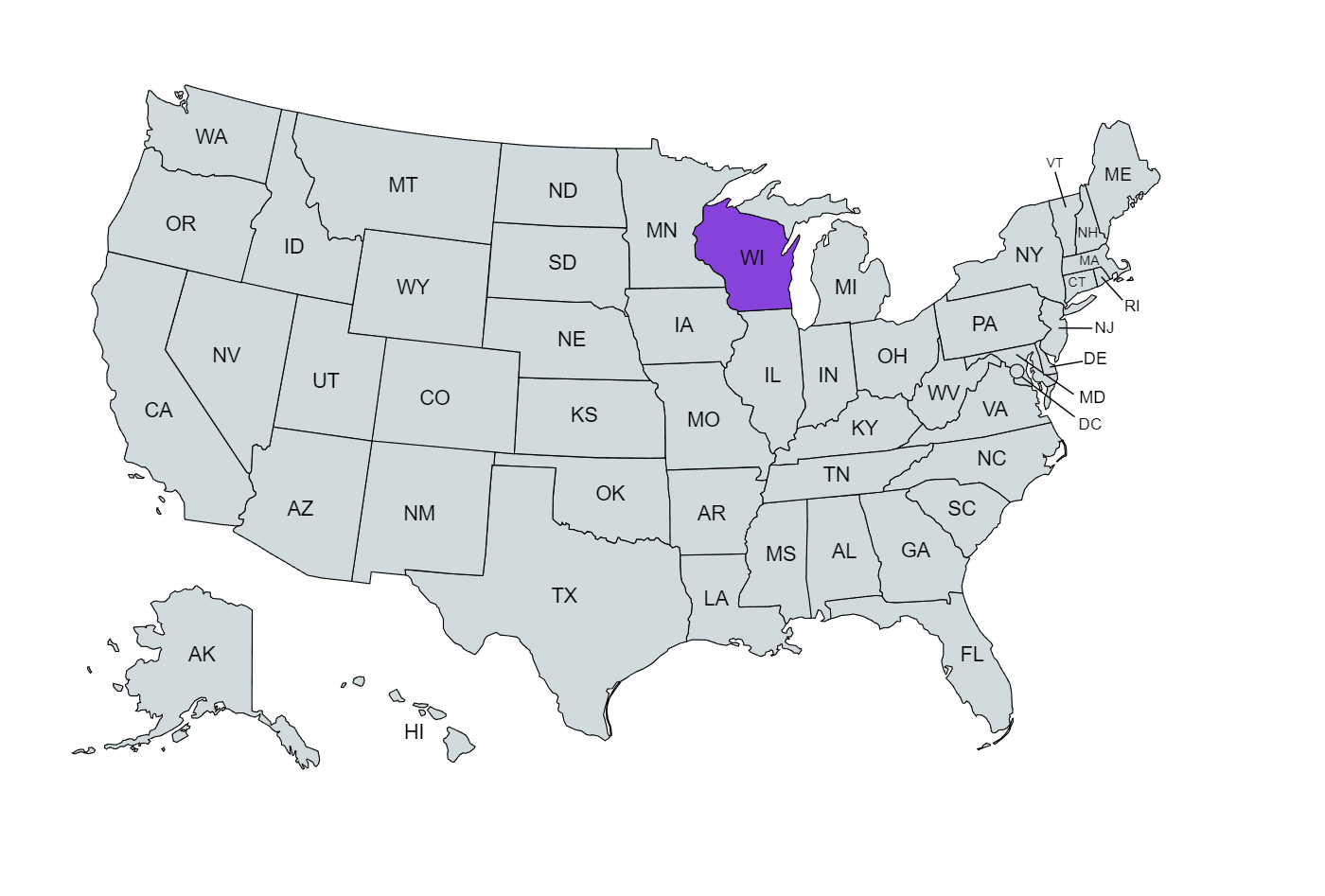Wisconsin Paycheck Calculator: Calculate Your Net Pay
If you’re wondering, “How do I figure out how much money I take home in Wisconsin?” we’ve got you covered.
Use our simple pay check calculator to estimate your net or “take home” pay after taxes, as an hourly or salaried employee in Wisconsin.
Paycheck Calculator
Meanwhile, get ahead with our free resources:
How Does the Paycheck Calculator Work?
Input your salary information, such as wage and pay frequency, and our tool will handle the tax calculations for you. Once you’ve filled in all the information, click the “Calculate Tax” button, and the calculator will provide an estimate of your net or “take home” pay for the specified pay period. You can also check out our gross salary to hourly rate calculator and hourly wage to salary calculator.
Overview of Wisconsin Taxes
Wisconsin imposes a graduated individual income tax, with rates spanning from 3.54% to 7.65 %, while maintaining a flat 7.90% corporate income tax rate.
When it comes to sales tax, Wisconsin applies a 5% state rate, with a potential additional 1.75% at the local level, resulting in an average combined state and local sales tax rate of 5.43%.
For retirees, Wisconsin offers tax breaks on retirement benefits, such as Social Security and Railroad Retirement benefits. Additionally, residents aged 65 and older can qualify for deductions on specific retirement income under certain income criteria.

While property taxes are on the higher side, with an average effective tax rate of 1.73%, there are inheritance and estate taxes. Wisconsin's sales tax is 5%, but residents in Milwaukee will experience higher rates in 2024 due to two sales tax increases taking effect.
Additionally, the Badger State maintains an online registry of delinquent taxpayers and offers online services for return filing and refund tracking.
Median Household Income in Wisconsin
Wisconsin boasts a diverse and robust economy, with several key sectors driving its growth. Agriculture has historically been a significant contributor, with dairy farming, cheese production and crop cultivation playing pivotal roles.
In 2022, Wisconsin reported an unemployment rate of 3.3%, positioning it 19th among all 50 states. Among the key employment sectors in Wisconsin are Healthcare and Social Assistance, Retail Trade and Information.
Salaries in Wisconsin vary widely based on position. However, the median household income can give you a glimpse at the average salary a household is earning in this state.
Tips for Maximizing Your Paycheck
Here are some tips to help you maximize your paycheck:
- Create a detailed budget that outlines your monthly income and expenses
- Be aware of available tax credits and deductions, such as the EITC and the Homestead Credit
- Periodically review your tax withholding to ensure you're not overpaying or underpaying taxes
- Look for discounts, use coupons, and compare prices before making purchases
- Focus on paying off high-interest debts like credit cards as soon as possible
- Use budgeting apps or tools to monitor your spending habits
For a better understanding, check out our guide that elaborates on these points to enhance your financial wellness.
